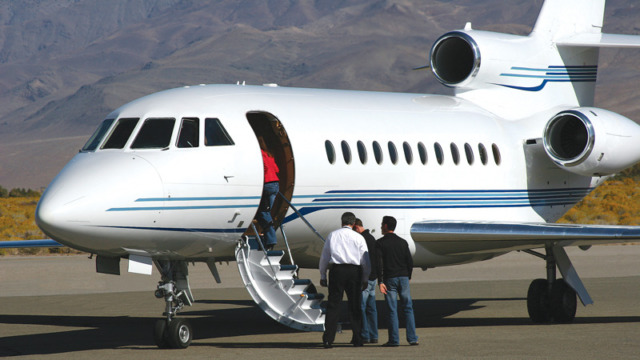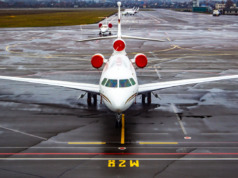
Owning an aircraft is an investment in your valuable brand. Protecting your brand’s integrity involves risk management that incorporates Know Your Customer (KYC) due diligence. While this topic is nuanced, understanding it can help ensure that you work with people who share your values.
What is KYC?
KYC is a process of due diligence used by financial companies to certify identity and to measure and continually monitor risk. It is based upon a series of federal regulations, including Executive Orders, the Bank Secrecy Act, the USA PATRIOT Act, and the Office of Foreign Assets Control (OFAC), which have an impact on all who use the US banking system, including wire transfers.
According to Luci Johnson, Senior Vice President, Operations Group Manager PNC Aviation Finance, “The KYC process for banks encompasses many elements and departments to ensure risk mitigation to the best of their abilities. From a PNC perspective, the KYC process starts as soon as a prospect is identified and continues all the way through the life of the transaction.”
When engaging in a financial transaction for ANY deposit or loan account, you will be asked not only for an unexpired proof of identity, such as a driver’s license or passport, but also the following:
- The party(ies) must disclose the beneficial owner of a company, which is the individual who owns 25% or more (15% or more if foreign owned/controlled), and the parties who affect decisions.
- Each organization must provide executed copies of all corporate formation documents and verification of the identity of the humans involved so that recipients can determine the risks of facilitating transactions.
- To facilitate due diligence upon on-boarding and during the life of a relationship, service providers rely upon many sources that include: OFAC, Lexis Nexis, Bridger Insight, advanced Google searches and alerts, TransparINT, Refinitiv – World-Check, Pacer, Semaphore Intelligence, and private investigators.
Why is this necessary?
Business aviation is an interconnected multibillion-dollar industry built upon trust. Escrow companies are the backbone of facilitating the flow of millions of dollars for complex, multinational transactions. Confidentiality demands integrity and trust in all parties, from and to those who work with you, including law firms, banks, lessors, aircraft brokers, charter brokers, investors, and other service providers.
This trust was upended in 2020 when a company, Aircraft Guaranty Corporation (related via ownership to Wright Brothers Title Aircraft), was investigated by the Department of Justice (DOJ) for allegedly conspiring to facilitate multi-national drug trade and money laundering. The principal served on boards of industry consortiums that maintained strict codes of ethics. Transactions were halted for a prolonged period as the DOJ conducted its risk assessment.
The DOJ’s actions were a watershed event in the business aviation community that led to constructive discourse on issues of collaboration, integrity, transparency, and fidelity. Many fortified their processes and changed client onboarding, legal contracts, and ongoing monitoring beyond the aircraft acquisition, to engender trust and highlight integrity. Despite numerous discussions, no standardized due diligence process has yet emerged for the aviation industry.
Preserving the integrity of your brand
As you align yourself with service providers, look to their risk assessment procedures and understand what might be required upfront and throughout your aircraft ownership experience to insure the value of your brand.
- Mindset Matters – Sparrow Executive Jets President Jacquie Dalton states, “We conduct due diligence on clients up-front and ongoing because it is important to our community of operators who fly our clients to know who is on their aircraft.” With Aerospace Reports, Escrow Agent Melissa Phelix shares that security is mission-critical as the firm maintains systems in place to secure sensitive data, and that members of their team complete ongoing security training at least once per quarter.
- Birds of a Feather – Research the due diligence processes of the service provider before selecting one, as they are an extension of your values. According to Keri Dowling of Air Law Office, “You can expect due diligence assessments to commence prior to engagement. It will further be included in letters of intent and purchase agreements to facilitate collection of the information needed. In addition to banks, lessors, charter companies, and FBO/hangar operators are incorporating OFAC, KYC, and change-in-control requirements in their documentation.”
- Bring Your Inner Girl Scout and Be Prepared – A picture answers many questions. In addition to the required information, include an organizational chart that incorporates the people who are authorized to affect decisions.
- Understand That Information Will NOT Be Shared – Knowledge is power, but sharing confidential information can violate service providers’ client confidentiality protocols.
- Similar but Not Equal – Not all businesses share the same threshold for risk, nor do all financial institutions follow the same processes regarding which parties are subjected to due diligence.
- Trust but Verify – Daily due diligence can be conducted during the life of your aircraft ownership. This is further confirmed by Caise Brailsford, Compliance Manager for TVPX, who shared that, in addition to initial due diligence, the firm utilizes a service that provides notifications of issues that arise in real time after the transaction closes.
- Trust Your Gut – According to Janine Iannarelli, President of Par Avion Ltd., “I always advise clients, whether buying or selling, that if not enough information is available on the party they are going to do business with, then they should conduct background checks to provide added assurance and if needed, later proof that they made an effort to identify with whom they were transacting business.”
Never assume that potential partners share your intent. Investigate the training, tools used, policies and procedures, and how issues that arise are addressed. After learning that his bank completed due diligence solely on the escrow company receiving funding, a soon-to-be aircraft owner conducted EDD on the Eastern European sellers in a back-to-back transaction after reading about the DOJ’s actions and reflecting upon “what could happen to my reputation if…” The due diligence added an immaterial cost to the transaction and removed any doubts about who was receiving his funds. Protecting your brand should be non-negotiable.
Shelley A. Svoren is the CEO + Founder of Infinite Branches, a project-based business that supports the initial and ongoing needs of those who view their aircraft as an investment in their brand.





